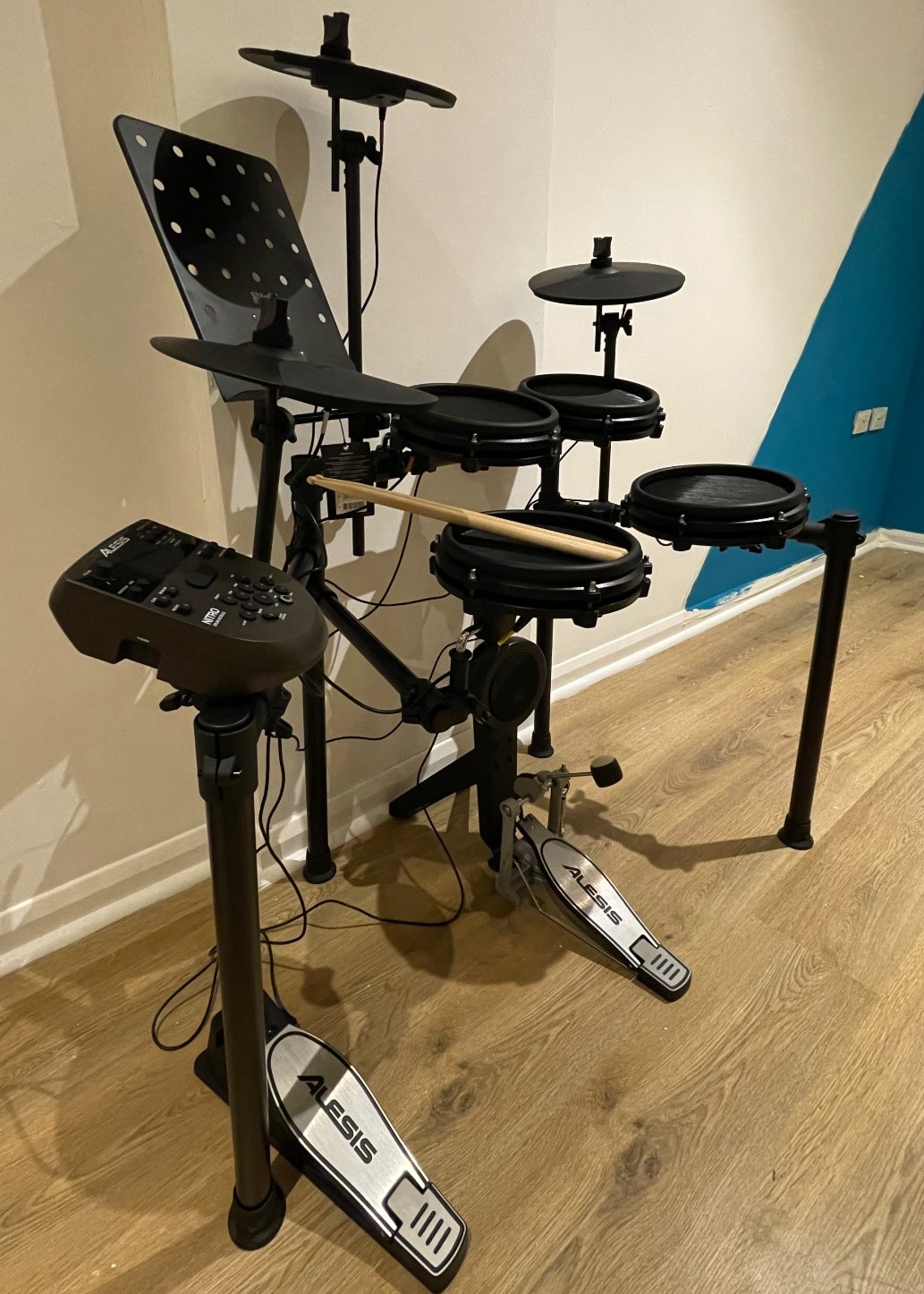Are drums hard to learn?
Mapex Mars Acoustic Drum Kit and Paiste Cymbals, Situated At Drummers Link Music School in Northampton.
Drums are percussion instruments that have been around for centuries. The modern drum kit as we know it is a popular instrument in various genres of music, including rock, pop, jazz, and many more. Some people believe that drums are challenging to learn, while others find them easy to pick up. In this blog post, we will explore whether drums are hard to learn and what factors contribute to the difficulty of learning the instrument.
Before we dive into the specifics, it's important to note that any new skill requires time, patience, and practice to master. Learning to play the drums is no different. The process may be challenging, but with the right mindset and effort, anyone can become proficient at playing the drums.
🥁 Drumming Requires Coordination
One of the most significant factors contributing to the perceived difficulty of drums is the coordination required. Drumming requires the player to coordinate both their hands and feet simultaneously, playing different rhythms on each limb. This coordination can be challenging for some people to develop, particularly those who haven't played an instrument before.
🎵 Drummers Must Have Good Timing
In addition to coordination, drummers must have excellent timing. Drumming is a rhythmic instrument, and maintaining a steady tempo is crucial to playing well. This timing is developed through practice, but some people may struggle more than others due to differences in natural rhythm.
💪 Drumming Can Be Quite Physical
Another factor that contributes to the difficulty of learning the drums is the physicality of the instrument. Drumming requires a lot of physical effort, particularly in the arms and legs. Players must have the endurance to play for extended periods without tiring, and they must be able to hit the drums with enough force to produce the desired sound.
This physicality can be particularly challenging for young children who are still developing their motor skills. However, with the right guidance and training, children can learn to play the drums effectively. It's also worth noting that drumming is an excellent form of exercise, and players can improve their physical fitness as they learn the instrument.
🧠 You Must Learn To Understand Complex Rhythms
The complexity of the instrument is another factor that contributes to the perceived difficulty of learning the drums. Drumming is not just hitting a drum; it involves playing different rhythms, using different techniques, and creating various sounds. Learning all of these different elements takes time and practice, and it can be overwhelming for beginners.
✨ Don’t Forget, Practise Makes Progress
However, there are ways to make the learning process more manageable. One effective method is to break down each element of drumming into smaller parts and focus on mastering one element at a time. This approach helps to build confidence and makes the learning process less daunting.
Alesis Nitro Mesh Electronic Drum Kit, Situated at Drummers Link Music School in Northampton.
🧑🏫 It All Comes Down To Teaching Methods
Another factor that can make drumming easier or harder to learn is the teaching method used. A good drum teacher can make all the difference in helping a student progress quickly and effectively. They can provide guidance on technique, rhythm, and other important aspects of drumming. A good teacher will also be able to tailor their teaching methods to the individual student, taking into account their learning style and skill level.
Alternatively, learning to play drums on your own can be more challenging. It requires a lot of self-motivation, discipline, and the ability to identify and correct mistakes. However, with the vast array of resources available online, it's never been easier to learn to play drums independently.
🎉 You Can Expect Some Instant Gratification Early On
One of the best things about playing the drums is the instant gratification it provides. Unlike some other instruments, players can quickly learn to play basic beats and rhythms that sound impressive. This sense of achievement can be very motivating for beginners and can make the learning process more enjoyable.
👥 Consider Learning in Group Classes
Many students learn better within peer-learning contexts, especially while they are beginner/intermediate students. There’s more of a sense of accountability and healthy competition when it comes to practising between lessons, and students develop the skill of playing with others straight away, improving their ability to play in time and understand music within a group context. Another benefit of group learning is that students can be asked to demonstrate something for another student, reinforcing what they’ve learned, and giving them a little ego boost in front of the class. Within a group class setting they also hear other students ask questions they may not think to ask; this can lead to a deeper, richer learning experience.
Summary
In conclusion, learning to play the drums can be challenging, but it's not impossible. The coordination, timing, physicality, and complexity of the instrument can make it difficult for some people to learn, but with the right mindset, effort, and guidance, anyone can become proficient at playing the drums. Ultimately, the difficulty of learning the drums depends on the individual's natural ability, motivation, and dedication to practice. Whether you choose to learn with a teacher or on your own, the key is to stay committed to the process, be patient with yourself, and most importantly, have fun with the instrument. With time and practice, you'll be able to play complex rhythms and beats, and perhaps even create your own music.
A Group Drum Class Setting At Drummers Link Music School Northampton.
So if you're interested in learning the drums, go for it, and embrace the challenge!




